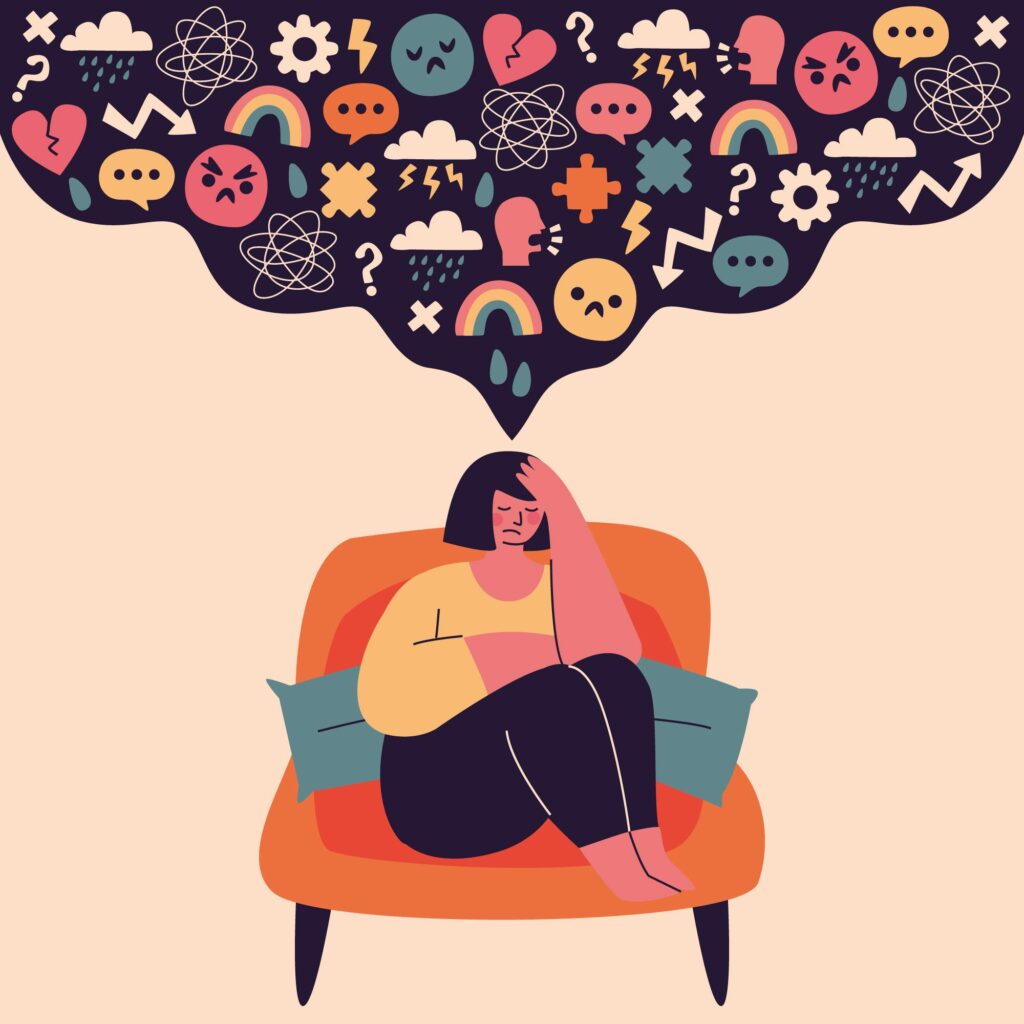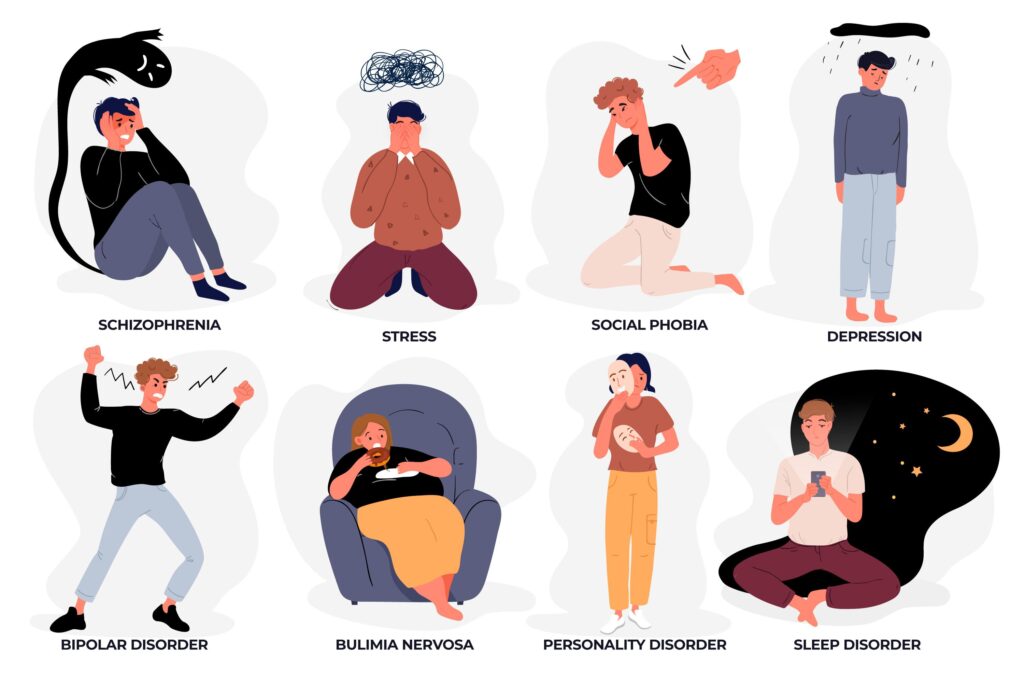- +94 112 883 318
- info@ncdalliancelanka.org
- Mon - Fri: 8.00am - 4.00pm Sat: 8.00am - 12.00pm
Mental disorders or mental health conditions involve disruptions in thinking, emotions, or behavior. It is common for people to experience mental health concerns occasionally. However, when these signs and symptoms persist, cause regular stress, and impact your daily functioning, it becomes a mental illness.


There are many different types of mental disorders. Some of them are listed below.
Symptoms of Anxiety Disorders include;
• Excessive fear and worry
• Related behavioral disturbances
Symptoms of Depression include;
• Experiences depressed mood (feeling sad, irritable, empty)
• Loss of pleasure or interest in activities
These symptoms will be presented for most of the day, nearly every day, for at least two weeks in depression.
Other symptoms may include;
• Poor concentration
• Feelings of excessive guilt or low self-worth
• Hopelessness about the future
• Thoughts about dying or suicide
• Disrupted sleep
• Changes in appetite or weight
• Feeling especially tired or low in energy
Symptoms of Bipolar Disorder include;
• depressed mood (feeling sad, irritable, empty)
• a loss of pleasure or interest in activities, for most of the day, nearly every day.
• Irritability
• increased activity or energy
• increased talkativeness, racing thoughts, increased self-esteem, decreased need for sleep, distractibility, and impulsive reckless behavior.
Symptoms of Schizophrenia include;
• Persistent delusions
• Hallucinations
• Dis-organized thinking
• Highly dis-organized behavior
• Extreme agitation
• Difficulties with cognitive functioning
Symptoms of anorexia nervosa include;
• Extremely restricted eating
• Extreme thinness (emaciation)
• A relentless pursuit of thinness and unwillingness to maintain a normal or healthy weight
• Intense fear of gaining weight
• Distorted body image, a self-esteem that is heavily influenced by perceptions of body weight and shape, or a denial of the seriousness of low body weight
Symptoms of Bulimia nervosa include;
• Chronically inflamed and sore throat
• Swollen salivary glands in the neck and jaw area
• Worn tooth enamel and increasingly sensitive and decaying teeth as a result of exposure to stomach acid
• Acid reflux disorder and other gastrointestinal problems
• Intestinal distress and irritation from laxative abuse
• Severe dehydration from purging of fluids
• Electrolyte imbalance (too low or too high levels of sodium, calcium, potassium, and other minerals) which can lead to stroke or heart attack
Complications sometimes linked to mental illness include
• Unhappiness and decreased enjoyment of life
• Family conflicts
• Relationship difficulties
• Social isolation
• Problems with tobacco, alcohol and other drugs
• Missed work or school, or other problems related to work or school
• Legal and financial problems
• Poverty and homelessness
• Self-harm and harm to others, including suicide or homicide
• Weakened immune system, so your body has a hard time resisting infections
• Heart disease and other medical conditions
